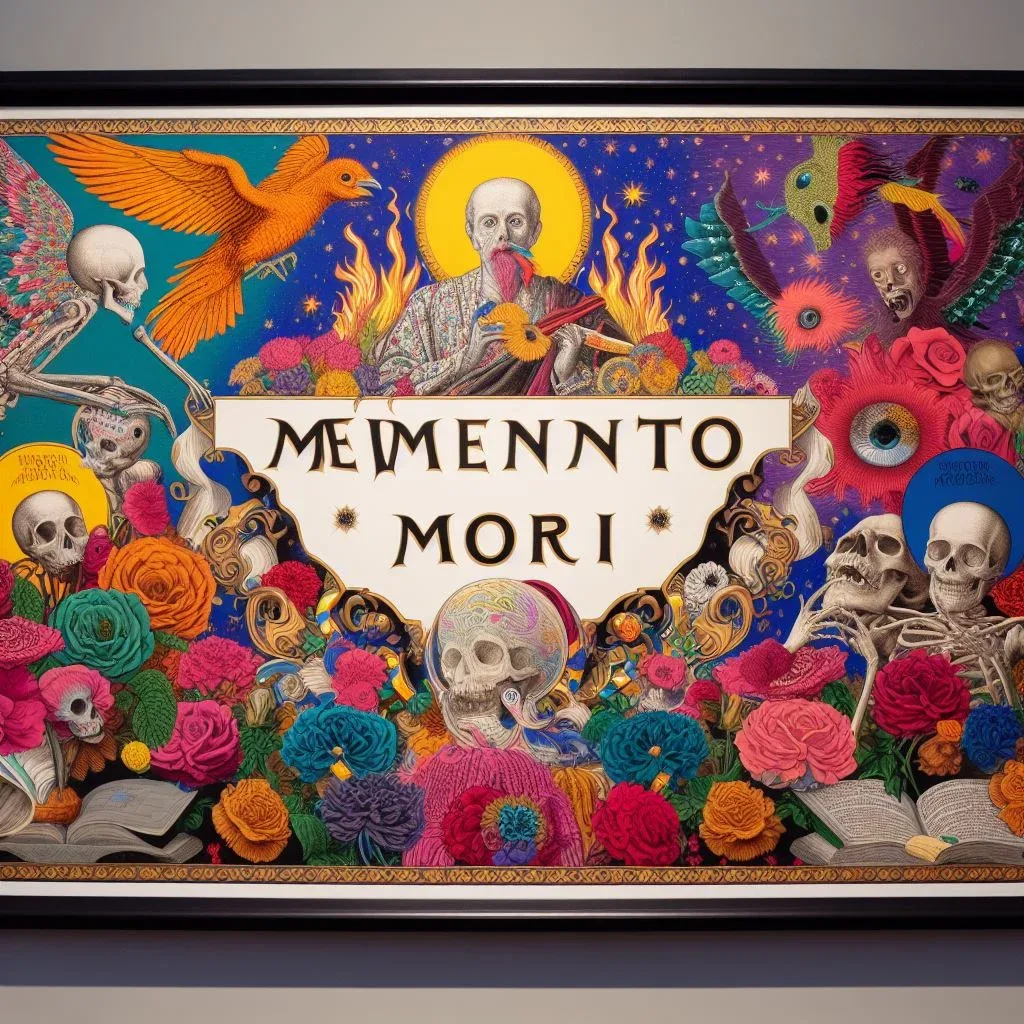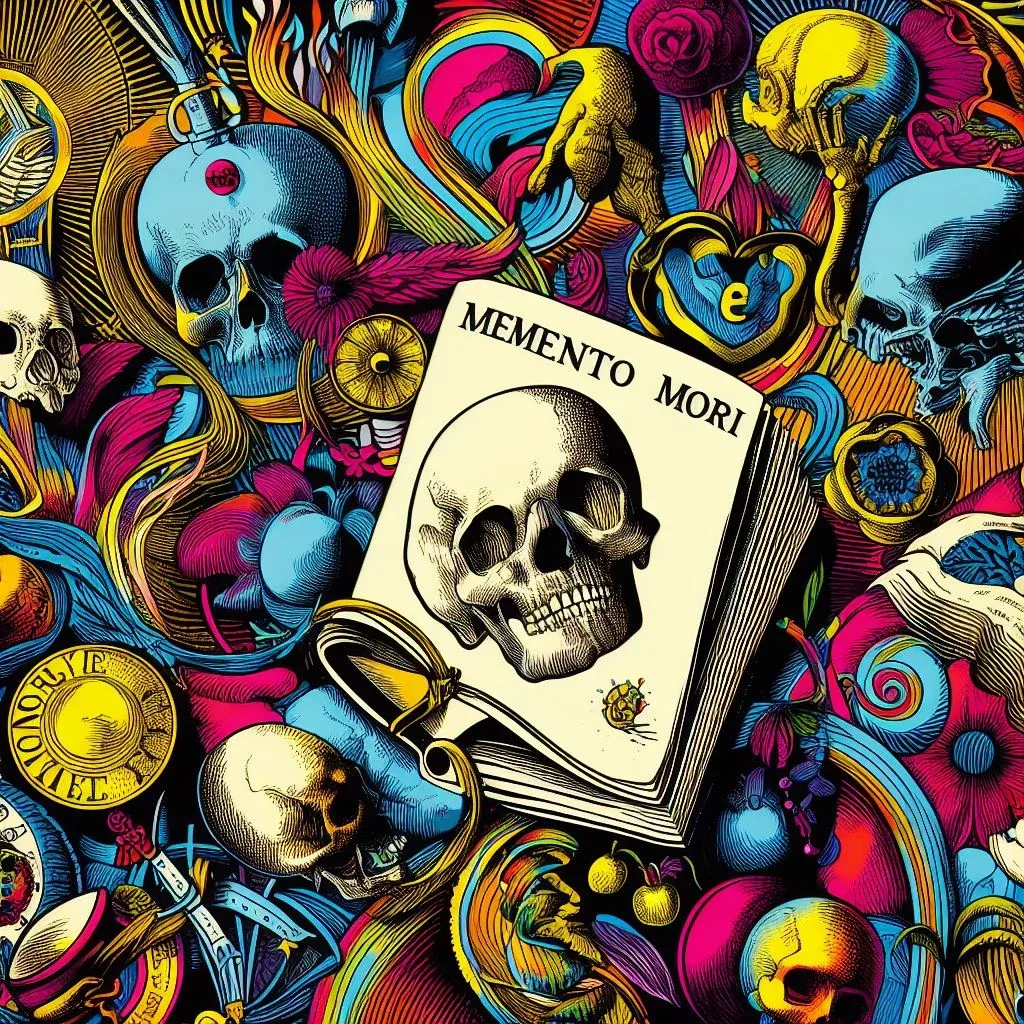“Memento Mori,” a Latin expression meaning “Remember that you will die,” is a powerful philosophy that has deep roots in human history. Over the centuries, this expression has served as a constant reminder of the impermanence of life and the importance of living a meaningful life. In this article, we will explore the concept of Memento Mori, its history, its relevance in Stoic philosophy, and how we can apply it to our contemporary lives.

The History of Memento Mori
The expression “Memento Mori” has a long history dating back to Ancient Rome. During Roman triumphs, a slave was assigned to stand beside the victorious general and repeat the phrase “Respice post te! Hominem te esse memento!” which means “Look behind you! Remember you are a man!” This humble reminder was intended to keep the victorious general grounded and aware of his mortality despite all the glories of victory.

The Memento Mori in Stoic Philosophy
Stoic philosophy, which flourished in ancient Greece and Rome, embraced the concept of Memento Mori as a fundamental part of its worldview. The Stoics believed that death was a natural part of life and that, by accepting it, we could live with greater wisdom and serenity.

For the Stoics, Memento Mori served as a constant reminder that life is ephemeral and that many of the problems we face are trivial in the face of inevitable death. This philosophy encouraged them to focus on what really matters, cultivate virtues such as wisdom and courage, and to live by an ethical code that helped them face life's challenges with dignity.
Applying Memento Mori to Our Lives

How can we apply Memento Mori to our contemporary lives? Here are some ways to incorporate this powerful reminder into our life philosophy:
1. Practice Gratitude
Memento Mori reminds us to appreciate the little things in life. Practice gratitude daily, remembering that each day is a gift.
2. Abandon Futile Worries
Many of the daily worries that plague us are trivial in the grand scheme of things. Focus on what is truly important and let go of what has no lasting significance.
3. Cultivate Meaningful Relationships
The time we spend with loved ones is precious. Memento Mori reminds us to value our relationships and create meaningful memories with those we love.
4. Take Calculated Risks
The fear of death often stops us from taking risks and pursuing our dreams. Remember that life is short and sometimes we need to take calculated risks to achieve what we want.
5. Live with Integrity
Death is inevitable, but our integrity is something we can control. Live according to your values and principles, regardless of the circumstances.
Conclusion: A Perpetual Reminder
Memento Mori is much more than a dark reflection on death. It is a perpetual reminder that life is an ephemeral and precious gift. By incorporating this philosophy into our everyday lives, we can find greater meaning, live authentically, and face challenges with courage and serenity. Remember that you are mortal, and use this awareness to live a truly meaningful life.

When we live with Memento Mori in mind, we gain a clearer perspective on what is truly important and find the strength to embrace life in its entirety, with all its beauty and imperfection.
Whether you're familiar with Stoic philosophy or simply seeking a way to live more authentically, Memento Mori can be a valuable guide for life's journey. Always remember: “Remember you will die.”
Memento Mori Frequently Asked Questions
In this FAQ, we will address common questions related to the concept of Memento Mori, its history, and its application in everyday life.

1. What does “Memento Mori” mean?
“Memento Mori” is a Latin expression that translates as “Remember that you will die”. It serves as a reminder of the impermanence of life and the inevitability of death.
2. What is the historical origin of Memento Mori?
The expression has roots in Ancient Rome, where it was used in triumphs to remind victorious leaders of their mortality. It is also associated with Stoic philosophy, which embraces the acceptance of death as part of life.
3. How does Memento Mori relate to Stoic philosophy?
The Stoics believed that Memento Mori was a constant reminder of the ephemerality of life. For them, accepting death helped them live more wisely, focusing on what is truly important and cultivating virtues.
4. How can I apply Memento Mori in my everyday life?
You can apply Memento Mori by practicing gratitude daily, letting go of futile worries, cultivating meaningful relationships, taking calculated risks, and living with integrity.
5. Is Memento Mori a dark philosophy?
Although the idea of death may seem dark, Memento Mori is not about embracing negativity, but rather about valuing life and living authentically. He reminds us not to waste the time we have and to seek meaning.
6. Is Memento Mori only applicable to people who follow Stoic philosophy?
No, Memento Mori can be applied by anyone, regardless of their philosophy of life. It is a universal reminder of the importance of living fully and facing life with courage and serenity.
7. How can Memento Mori be used to overcome the fear of death?
Accepting death as a part of life can reduce fear and anxiety around it. This can allow for a more peaceful and meaningful life.
We hope these answers have clarified your doubts about the concept of Memento Mori and how it can be applied in your life.






